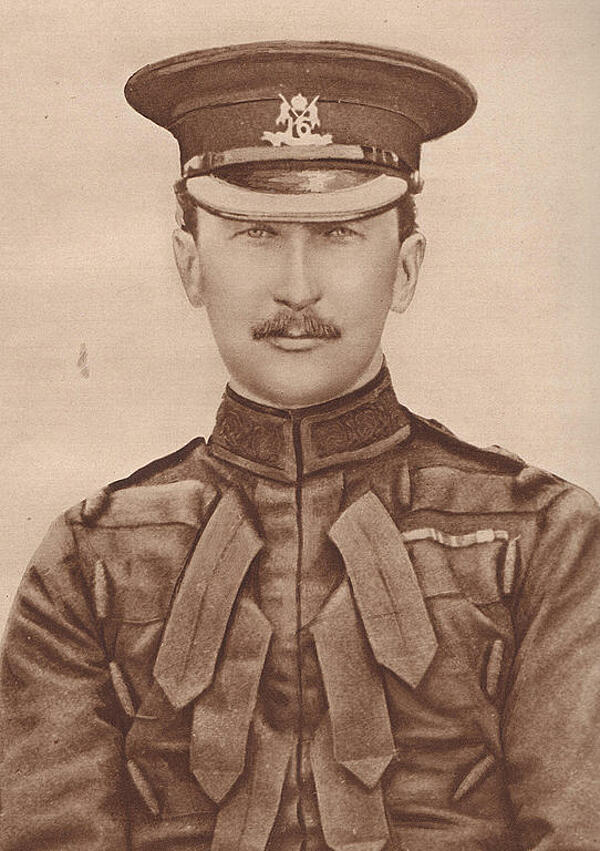General Hubert Gough
Hubert Gough was born on 12th August 1870 to a family in which three members had been awarded the Victoria Cross for outstanding bravery. They remain the only family to have one three times.
After attending Eton, Gough attended Sandhurst in 1888 and completed his training, before joining the 16th Lancers in 1889 and serving in the Boer War.
Between 1904 and 1906, Gough served as an instructor at the Staff College, Camberley, before he took command of the 16th Lancers. After this, he served in Ireland as commander of the 3rd Cavalry Brigade with the rank of brigadier-general. Gough was supported by the Ulster Unionists, has he open spoke out against the use of force in terms of imposing Home Rule, and he was also involved with the 1914 ‘Curragh Mutiny’.

When World War One began, Gough served as a cavalry commander in charge of the 7th Division within the British Expeditionary Force (BEF). He placed much of his faith in mobility and his division was subsequently nicknamed ‘Gough’s Mobile Army’. He went on to serve at the Somme, Arras and Ypres.
An advocate of cavalry attacks despite the evidence that trench warfare and artillery made such attacks incredibly difficult. This resulted in many other senior officers on the Western Front becoming quite critical of his views, but Gough did manage to form a positive relationship with Field Marshal Haig - Commander-in-Chief of the British Forces on the Western Front. This is likely to have been cemented by Haig’s cavalry background.
In spite of this, Plumer blamed Gough for failing to take advantage of the Allied success at Messines Ridge; while the Germans had been confused by the strong attack at the ridge, Gough was supposed to use his 5th Army to split the German forces based to the east of Ypres at the Gheuvelt Plateau, which would have weakened their defences.
Gough had decided against the plan, stating that if it failed his men could have been decimated and Ypres could have fallen. Haig came to his defence stating that there was logic in his argument, and the attack on the pass was delayed.
While Gough’s decisions may have been justified, it was clear that he had made enemies among the British High Command. He was criticised for many of his decisions, including not countering the Germans during their Spring Offensive in 1918. While Ypres remained in Allied hands, this decision resulted in man areas in the local region such as the village of Passchendaele being retaken in 1918. This was also true of Messines Ridge.
Many considered Gough to have failed to deliver a strong enough defence in these cases, although some argue that drastic changes to German tactics had made it almost impossible for him to have succeeded. The 5th Army had also been tasked with defending a huge 42-mile front, leaving them thin on the ground.
Sadly for Gough, the constant criticism eventually saw his reputation shattered and he was replaced in his command by General Sir William Birdwood. He was not given another command for the rest of the war.
Gough retired from the army in 1922 with the rank of general, and in 1931 he wrote about his experiences in a book entitled ‘Fifth Army’.
In 1939, Gough (who had been knighted two years before) helped to create a Home Guard unit for Chelsea. However, he retired from this in 1942. He lived through World War Two and died at the age of 92 in 1963.
MLA Citation/Reference
"General Hubert Gough". HistoryLearning.com. 2026. Web.
